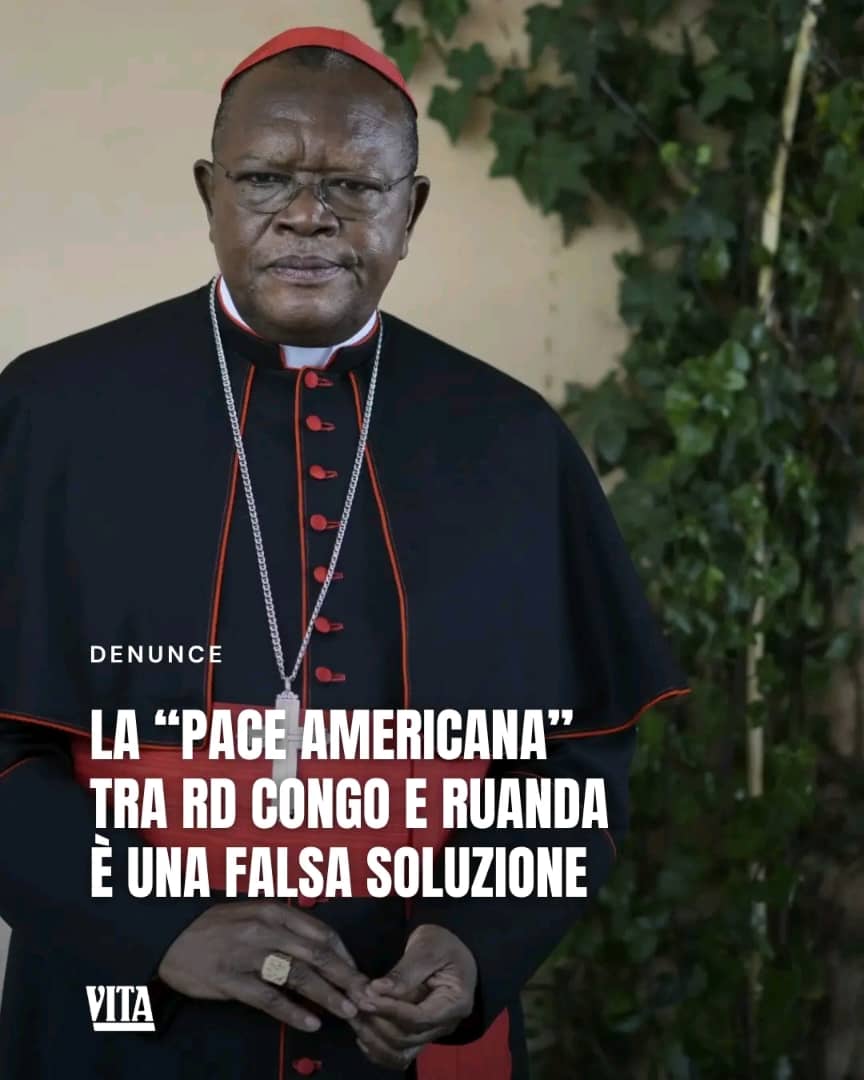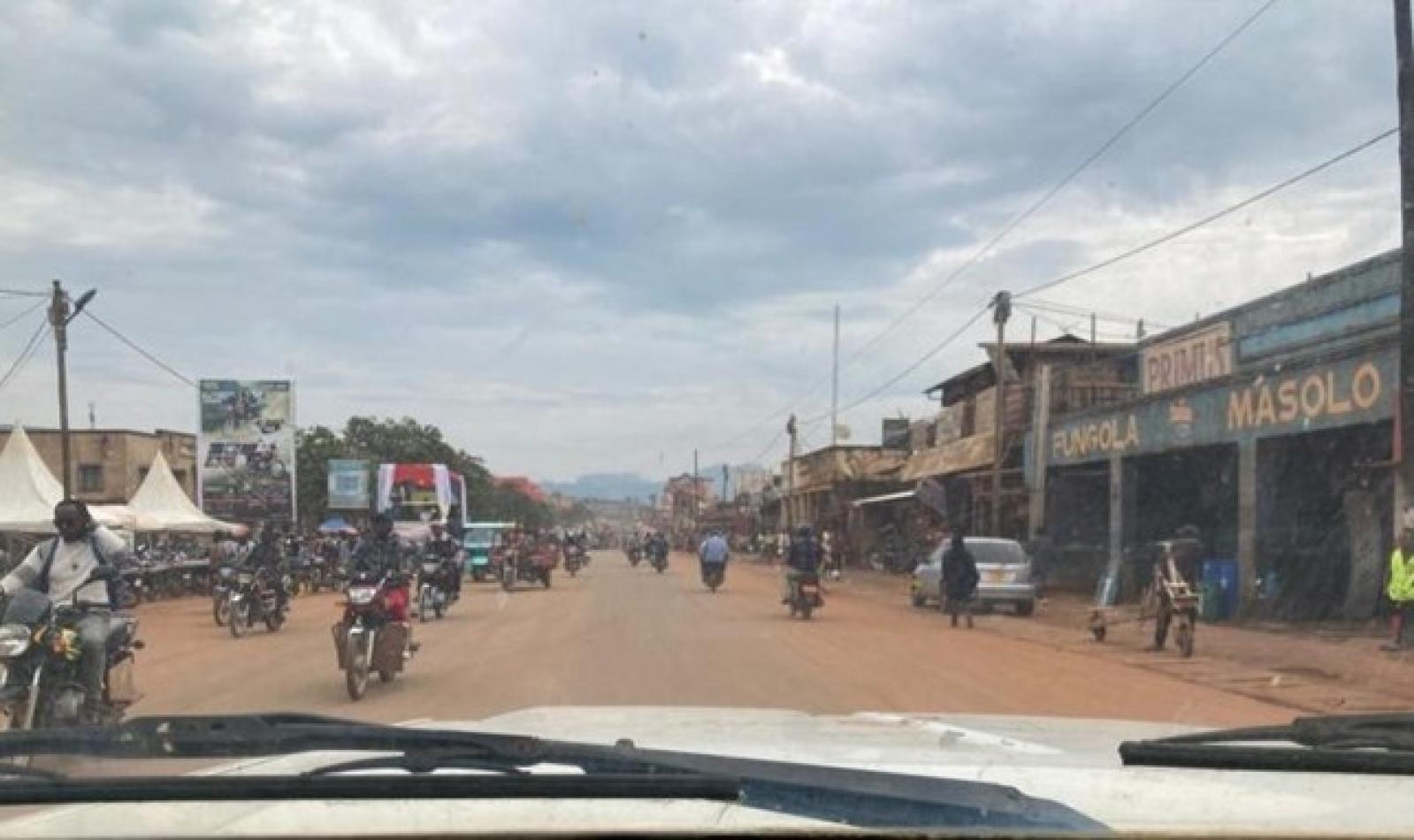Daniel Comboni
Comboni Missionaries
Institutional area
Other links
Newsletter
Friday, July 11, 2025
A few days on from the signing of the DR Congo–Rwanda peace agreement in Washington DC, Father Piumatti reports violent attacks on civilians in North Kivu. The missionary emphasizes the deal's failure to involve local armed groups, whose members have no intention of withdrawing and intend to retain control of local communities for financial gain. [Popoli e Missione / SIR]
Less than a week after the Rwanda–DR Congo peace deal brokered by the White House was signed in Washington, cracks are starting to show, and the unknowns of a top-level deal that fails to address the turmoil on the ground are piling up. The deal also fails to address the fate of civilians in besieged territories, where the absence of neutral forces (traditionally the role of the UN Peacekeeping Forces) leaves local communities unprotected. The first unknown is the actual withdrawal of the M23 rebels from the invaded territories: at this very moment, both Bukavu and Goma are plagued by extreme violence and retaliation against civilians.

Cardinal Fridolin Ambongo Besungu, Catholic Archbishop of the Democratic Republic of Congo,
from 1 November 2018 Metropolitan Archbishop of Kinshasa.
It should be remembered that the paramilitary factions were not consulted and have been excluded from the negotiations. These groups have asserted their influence in a chaotic and vindictive manner. “As expected, the militia are refusing to relinquish control of the area. Many of them will follow orders from the Rwandan army, but several local leaders clinging to their limited power will never agree to surrender it,” explains Fr Giovanni Piumatti, a fidei donum priest who returned last Sunday from Kimbulu, North Kivu.
A particularly disturbing video was filmed in the Bukavu area. It shows a public execution that took place a few hours earlier. A young man stands in front of a crowd incited by an M23 rebel, who asks the crowd what should be done with him. The crowd shouts, “Let him go!” The militiaman keeps his rifle pointed at the kneeling young man and then shoots him. Immediately afterwards, children throw stones at the victim.
Other videos clearly show M23 militia members capturing civilians, all of whom are very young boys. It is unclear whether they are being held hostage or if this is merely a show of force, and where they are being taken. According to Father Piumatti, those decisions, “dictated by economic interests, such as USA’s desire to seize control of the gold and coltan mines”, imposed from above in accordance with the American model of peace, suffer from the failure to involve local actors in the negotiations, leaving the rebels out of the deal — with the risk of a subsequent uprising. Furthermore, the Washington peace accord makes no mention of compensation or ‘reparations’ owed to civil society for the suffering endured.
The text makes no mention of summary executions, sexual violence against women or the hundreds of cases of abduction and torture committed by the M23 rebels. This leaves the door open to acts of arbitrariness. This is one of the reasons why wars in Africa often escalate into widespread and fragmented guerrilla warfare and low-intensity conflicts, which make life impossible for local communities. Meanwhile, militiamen continue to carry out raids and armed attacks.
A second significant unknown is whether Rwandan President Paul Kagame intends to hand over the eastern territories of the Congo to the Congolese government rather than annexing them to Rwanda. Contrary to the DR Congo–Rwanda peace agreement signed on 27 June, it is said that there is a somewhat ‘covert’ plan to establish a parallel state in eastern DR Congo under Rwandan control.
According to a new report by the UN Group of Experts cited in the Belgian newspaper De Standaard, the ultimate goal is to gain full control of the region’s raw materials trade. “According to sources within the Rwandan army and government, Kigali’s ultimate aim is to control the territory and Congolese natural resources,” reads the report by the group of experts, led by Belgian Melanie De Groof and quoted by De Standaard.
The North and South Kivu regions of eastern Democratic Republic of Congo are renowned for their rich deposits of coltan, gold and cobalt. The stakes are high for the United States (but also for Rwanda, which has been profiting greatly from these resources). In exchange for the sites being managed by private US investors – in agreement with the governments of the DRC and Rwanda – the US is committed to ensuring relative ‘peace’ between the two governments.
However, the mines, especially the gold mines in the south, are largely controlled by Chinese investors, outside the remit of the peace agreement.
Ilaria De Bonis – Popoli e Missione / SIR




